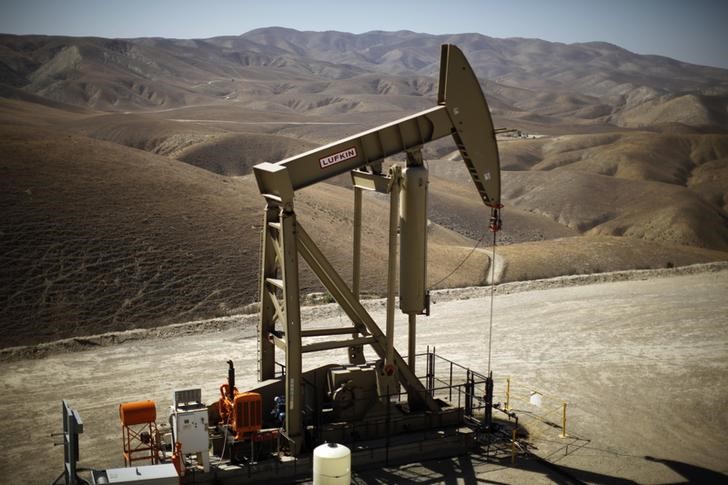* IEA says market won't re-balance before 2017
* Russia says it could lift output to over 12 mln bpd
* Iran re-iterates plans to regain post-sanctions market
share
* Analysts say rebalancing will largely depend on U.S.
output
By Henning Gloystein
SINGAPORE, April 21 (Reuters) - Crude prices fell early on
Thursday as concerns over a global glut took centre stage after
Russia and Iran said they were ready to raise oil production
further, while inventories in the United States climbed
slightly.
The International Energy Agency (IEA) said on Thursday that
oil markets would likely take until 2017 to rebalance and that
even that was provided there was no major economic slowdown.
International Brent crude futures LCOc1 were trading at
$45.36 per barrel at 0048 GMT, down 44 cents from their last
settlement.
U.S. West Texas Intermediate (WTI) crude futures CLc1 were
down 40 cents at $43.78 a barrel after the U.S. Energy
Information Administration (EIA) said that crude stocks rose
slightly, by 2.1 million barrels last week.
Russia said on Wednesday it was prepared to push oil
production to historic highs, just days after a global deal to
freeze output levels collapsed and Saudi Arabia threatened to
flood markets with more crude.
Energy Minister Alexander Novak said Russia was "in theory"
able to raise production to 12 million or even 13 million
barrels per day (bpd) from current record levels of close to 11
million bpd.
Meanwhile, Iran, determined to regain market share following
the lifting of international sanctions last January, reiterated
its intention to reach output of 4 million bpd as soon as
possible.
With major producers in the Middle East and Russia seemingly
racing to raise production, much will depend on U.S. shale
drillers and demand to determine how long the global glut lasts
which sees between 1 million and 2 million barrels of crude
pumped every day in excess of demand.
"Any hope of market re-balancing from the current surplus in
supply (lies) on the predicted decline in U.S. oil production,"
French bank BNP Paribas (PA:BNPP) said.
IEA chief Fatih Birol said on Thursday he expected the oil
market to come back into balance from oversupply by next year,
although he warned that this was provided there were no major
economic shocks.
Speaking in Japan, Birol said the IEA expects non-OPEC oil
production to fall by about 700,000 bpd this year.
"The U.S. accounts for the bulk of non-OPEC's 2016 oil
supply contraction of 700,000 barrels per day forecast. If the
decline in the U.S. oil supply proves insufficient to tighten
balances, then ... the oil price will remain low to further
crowd out higher cost and less efficient producers, as well as
stimulate demand," BNP Paribas said.
